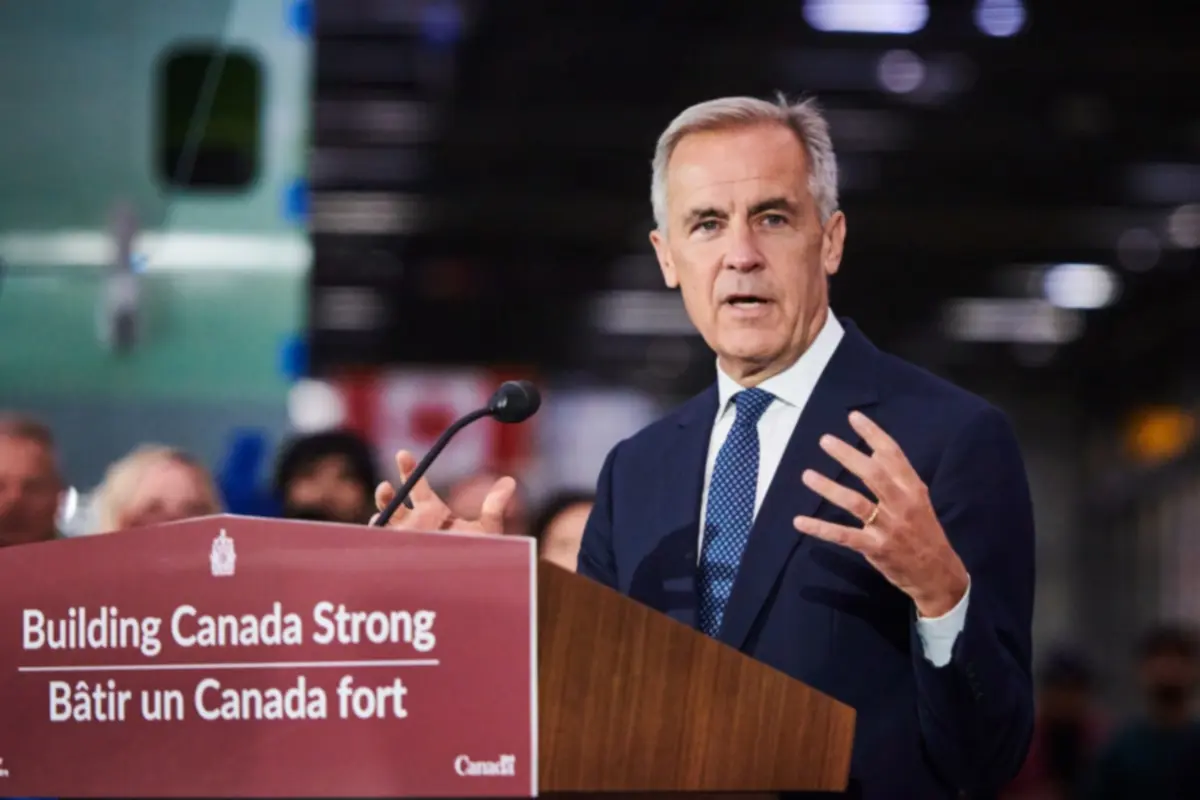
Kevin Yin is a contributing columnist and an economics doctoral student at the University of California, Berkeley.
Picture waking up again in early 2025, before the April election. An unfamiliar candidate mounts the stage and outlines his agenda: eliminate the carbon tax, remove countertariffs on the United States in the name of free markets, pursue a thaw in relations with the oil and gas sector, and cancel the planned capital gains tax increase. Without knowing his party affiliation, you might reasonably assume he was running for the Conservatives. Yet this is precisely the tack Liberal Prime Minister Mark Carney has adopted. The fact the Prime Minister has also suspended the federal EV mandate only bolsters the argument; Mark Carney could just as well have run as a Conservative. The mandate, which had required Canadian automakers to ensure 20 per cent of their sales were electric by 2027, was a signature Trudeau-era initiative aimed at cutting emissions. But with the auto industry facing tariff pressure from the United States, the Carney government has concluded that economic relief is the higher priority for now. It is one more among a series of moves that render Mr. Carney ideologically indistinct.
Indeed, many of Mr. Carney’s moves in his first year as prime minister reflect the tenor of proposals from Pierre Poilievre’s Conservative Party. Mr. Poilievre’s Conservatives likewise pledged to remove carbon taxes and struck an agreement where Canada would lift tariffs on the U.S. They also emphasized the need to cut bureaucracy for energy projects and infrastructure, while pushing for tax relief for the middle class. And on areas where Mr. Carney came from the left, such as deficits, the Conservatives were compelled to move toward his position.
Naturally, there remain reasons Mr. Carney aligns more comfortably with the broad-tent Liberal Party, historically a home to varied leadership stretching from fiscal conservatives to supporters of nationalized oil.
He is a technocrat above all, which appeals to the party brass, meaning circumstances steer policy more than strict ideology. His plan to recognize Palestine is an instance where party principles matched shifting international sentiment and geopolitical pragmatism. The Liberal banner also afforded him greater leeway on deficit spending, which he has used extensively – although this campaign also featured sizeable deficits proposed by the Conservatives. And while cutting the carbon tax was tactical, it’s hard to imagine that Mr. Carney, an economist and former U.N. climate envoy, does not personally accept their effectiveness.
Does this imply the Conservative Party was “right” in April? To a degree. Trudeau-ism, which was content to “let the bankers worry about the economy” and argued there was little “business case” for exporting liquefied natural gas, had irritated even moderate Liberals by the end, including members of his own cabinet. And as tariffs and conflicts now dominate Western capitals’ agendas, more traditionally right-leaning ideas like prioritizing the economy and military buildup are naturally fashionable. In that respect, Mr. Carney is merely reacting to the moment, and the Conservative Party merits some recognition for its prescience.
Yet the way and zeal with which one pursues this matters too.
Whether one supports tariff concessions to the United States because the perceived cost of retaliation is fundamentally too steep, or merely as a conditional gesture to restart talks, will shape how our negotiations with the U.S. ultimately unfold. Whether one suspends EV sales mandates because of short-term economic pressures, or due to a broader inability to properly assess the dangers of climate change, will influence expectations about how the government will address a rapidly warming world.
While I am concerned about the long-term safeguarding of our green programs, it may be a feature, not a flaw, of Canada’s political system that a Conservative candidate can propose large deficits while Liberals can compromise on net-zero goals. That parties often aren’t as far apart in practice and that dogma can give way to pragmatic policy (or at least what is perceived internally to be pragmatic) when circumstances shift is something to applaud. In fact, it is probably this characteristic—that Canadians agree more than we assume—that has shielded Canada for decades from the worst extremes of U.S. polarization on social matters.
Thus, while sensible people can dispute whether Mark Carney should govern as conservatively as he has, it at least speaks to the caliber of our politics that he does.
Sustainability advocate with a keen eye on policies, trends, and real-world EV impact.

Leave a Reply